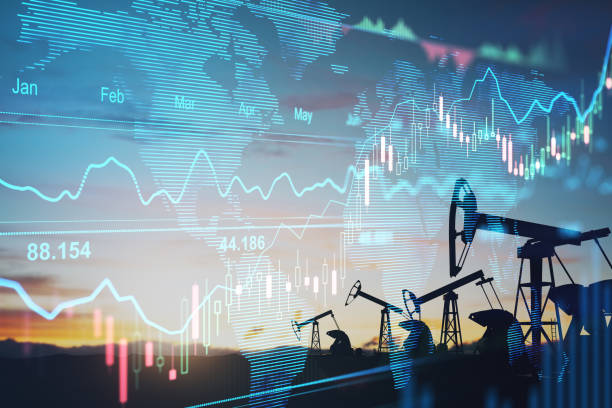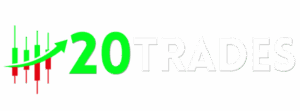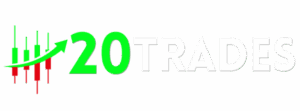How does it work?
The most common approach to trading Commodities and Energy is with CFDs. 20Trades provides you with the CFDs to trade and take advantage of the significant price fluctuations that these markets have to offer. With the help of our world-renowned award winning MetaTrader 5 platform, trading has never been this easy.
Traders can go long or short without having to physically buy these assets, and use the leverage as an advantage.
Key factors which influence price movement of Commodities
- Demand levels from emerging markets.
- supply levels of the commodities.
- The US Dollar rate.
- Weather conditions across countries
- The availability of substitutes.
Types of Commodities in the Market
Commodities are divided into two different categories: hard and soft commodities.
Hard Commodities
Hard commodities consist of natural resources that is mined or extracted. The hard commodities are classified into two categories:
1) Metals – Gold, Silver, Zinc, Copper, Platinum
2) Energy – Natural gas, Crude oil, gasoline, heating oil
Soft Commodities
Soft commodities refer to those commodities that are grown and cared for rather than extracted or mined. The soft commodities are classified into two categories:
1) Agriculture – Rice, Corn, Wheat, Cotton, Soybean, Coffee, Salt, Sugar
2) Livestock and meat – Feeder cattle, live cattle, Egg
How Many Exchanges Are Available In The Commodity Market of India?
India has 22 different commodity exchanges that have been formed under the Forward Markets Commission. There are 4 popular commodity exchanges for trading in India:
1) Indian Commodity Exchange (ICEX)
2) National Multi Commodity Exchange of India (NMCE)
3) Multi Commodity Exchange of India (MCX)
4) National Commodity and Derivative Exchange (NCDEX)
Participants of Commodity Market
There are two major participants in the commodity market:
Speculators
Speculators are traders in the commodity market that continuously check the price of commodities and tell the future price movement. If they expect the price to go upwards, they buy a commodity contract and instantly sell them as soon as the price goes upwards. Similarly, if they expect the price to go downwards, they sell their commodity contracts and buy back when the price falls. The primary intention of every speculator is to learn a large amount of profit in any type of market.
Hedgers
Hedgers are normally manufacturers and producers who protect themselves from the risk by using the commodity futures market. Let us understand with the help of an example: If a farmer expects that there will be fluctuations in the price during crop harvesting, he can hedge his position. To protect himself from the risk, he will enter into the futures contract. If the crop price goes down in the market, the farmer can compensate for all the loss and by booking profits in the future market. Similarly, if the price of crops goes up during crop harvesting, the farmer can suffer from a loss in the future market, and he can repay it by selling his crop at a higher price in the local market.
Why Invest in the Commodity Market?
Investing in the commodities market has some advantages and disadvantages. Let us look at the advantages first:
Advantages
Diversification
The performance of the commodity market is inverse as compared to the returns of stocks and bonds. Therefore, investing a small percentage of your funds into the commodities market is beneficial to several individuals. It will help them achieve a high return on investment even if stock prices have a downward trend. This helps them to compensate for negative or lower profits generated mainly by the capital sector.
Margin Trading
Compared to bond and stock market dealings, commodity brokers offer a lower margin in terms of trading. It grants brokers to trade on borrowed funds that allow both the speculators and hedgers to profit from each transaction. While commodity traders can benefit from bulk orders by promising repayment later, thus helping speculators to earn higher returns from such investments.
Real Returns
As per the economic and capital market conditions, specific goods are stable, while several commodities tend to remain volatile due to economic and capital market conditions. A real example of commodities being volatile is crude oil. Its price does not remain stable due to large fluctuations in supply, mining problems, or economic conditions. Stockholders invest in such commodities to book profit even there the trade is volatile and attain a long or short position as per their prediction towards the market.
Disadvantages
Limited Returns
Commodity investments only aim to accumulate capital profit, whereas stock and bond markets have periodic payouts such as coupon, payments and dividend coupons. However, real expertise is required in the commodity market to gain high returns. Individuals can trade via any established commodity exchange by registering with a particular commodity broker.
High Risk
The commodity market is really volatile, and any changes in the demand or productive capacity can badly hurt the prices. Due to such high volatility, the prices cannot remain stable, thus causing investors to lose high returns. Hence individual dealing in the commodity market should be well versed with internal and external factors such as the internal working of the company or international trade before selecting to trade in commodities. Also, an individual must keep the supply and demand patterns to lessen the further risk




